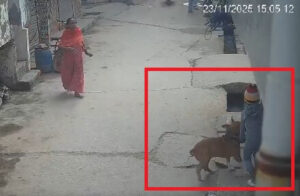Omar’s grey beard fails to invoke sympathy in Kashmir

File Photo: Twitter
Photo: Twitter
Srinagar: Former Jammu and Kashmir Chief Minister Omar Abdullah’s latest grey beard sporting picture might have caused a flutter on social media, but instead of invoking any sympathy, the picture has generated only pity among the Kashmiri people.
Omar’s picture with a long unkempt grey beard, winter cap and flakes of snow on his jacket appeared recently in many newspapers and social media sites. It is not hard to guess why the picture was posted in the first place.
The intention of posting the picture had been to gain sympathy among the Kashmiris and also among those who matter outside the Union Territory.
Ironically, the picture did generate sympathy from politicians like Sitaram Yechury, Mamata Banerjee and others, but among the people of Kashmir who can bring Omar to power the picture has only evoked pity.
“Look at his face, he looks like one who is finally repentant and paying for his follies,” is the most common reaction of the people of Kashmir after they saw the picture.
The one silver lining to this otherwise depressive dark cloud for the scion of the Abdullah family that has off and on ruled Jammu and Kashmir for 40 years, is that there does not seem to be any sympathy for Omar’s political adversaries among the mainstream political parties in the valley.
“Does anyone of them ever know how it feels when you have to leave your home in biting winter cold at five o’clock in the morning to stand in a queue for a cylinder of cooking gas? Does anyone of them know how it feels when there is no electricity and the minimum temperature is minus six degrees Celsius? Does anyone of them know how an old man feels like when he slips on the frozen path outside his home? They are paying for their sins and it is time they realise what they have done to Kashmir,” said Khurshid Ahmed Khan, 63, who lives in the Batmaloo area of Srinagar.
It has been nearly six months since most Kashmiri politicians were placed in detention, but not once has there been any public outcry over their incarceration.
“Except for their families and relatives, no one has approached us to meet these detained leaders,” said a senior police officer, who is assigned security duties for the detained leaders.
Kashmir’s politics has finally taken a u-turn when one compares today’s public response to the leaders’ detention to the days when the founder of the regional party National Conference Sheikh Abdullah was arrested in 1953.
The valley had remained shut for months on end and the only demand that people had in 1953 was that the Sheikh be released.
“Today the people of Kashmir feel that they are fine and safe with the Abdullahs remaining shut up in detention. They have shown so many imaginary rose gardens to the people that nobody is now ready to buy their promises.” These words of Bashir Ahmad War, 68, who lives in Ganderbal district, once the strongest political bastion of the Abdullahs, should be enough for everyone to understand how the legacy of the late Sheikh has been squandered by those who inherited his party and politics.
IANS





